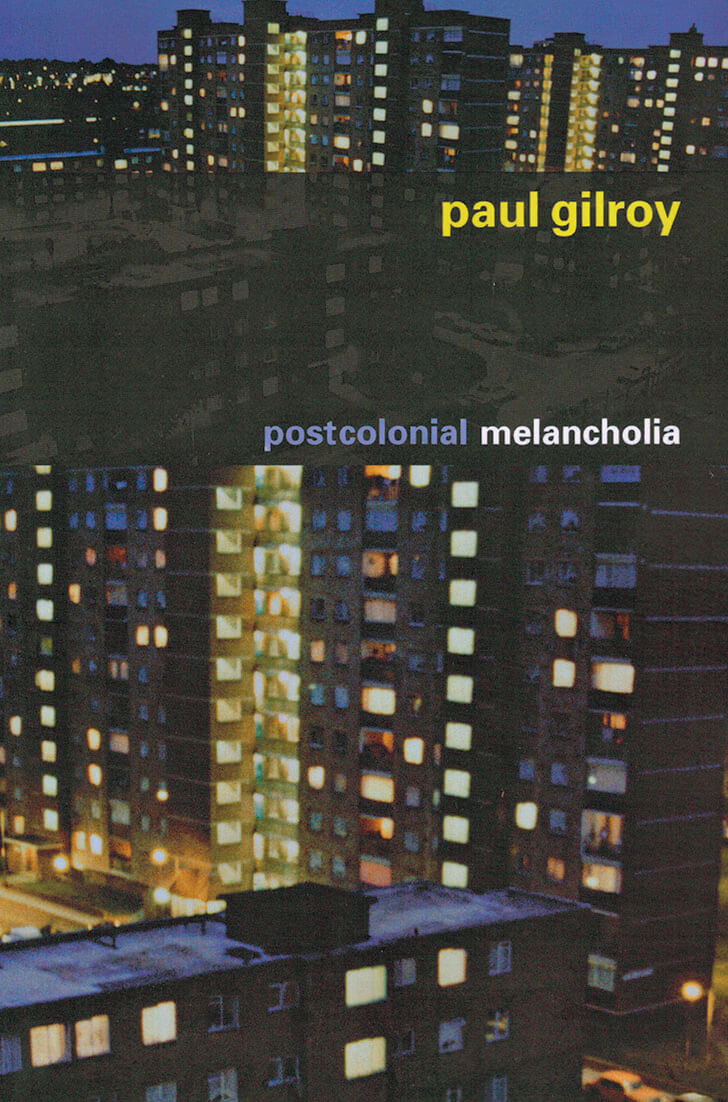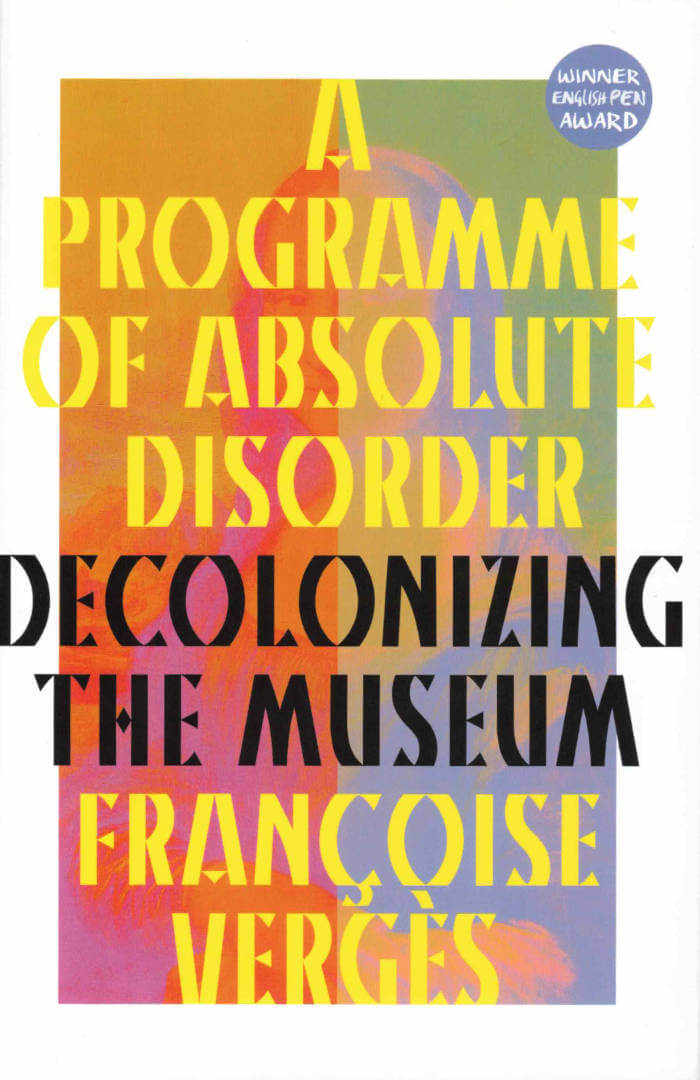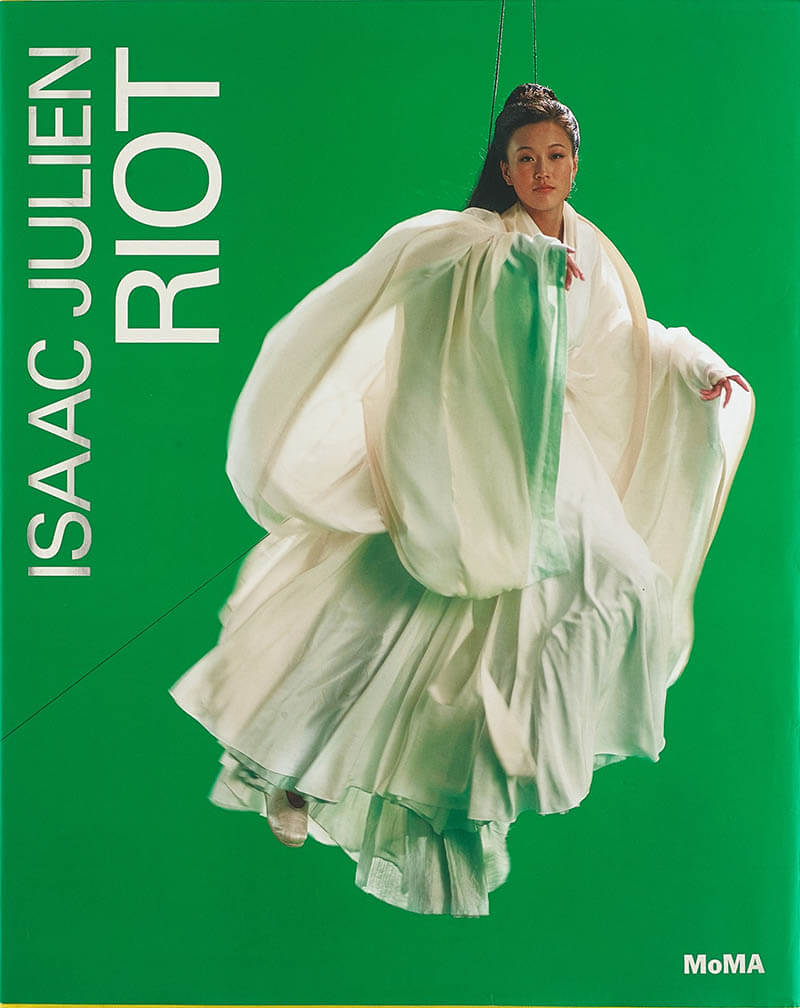Paul Gilroy
Paul Gilroy
-575f5a59fae756755c70e16a3f1db7f4.jpg)
The Black Atlantic
In this groundbreaking work, Paul Gilroy proposes that the modern black experience can not be defined solely as African, American, Carribean or British alone, but can only be understand as a Black Atlantic culture that transcends ethnicity or nationality. This culture is thorough modern and, often, overlooked but can deeply enriches our understanding of what it means to be modern.
This condition comes out of historical transoceanic experience, established first with the slave trade but later seen in the development of a transatlantic culture. And Gilroy takes us on a tour of the music that, for centuries, has transmitted racial messages and feeling around the world, from the Jubilee Singers in the nineteenth century to Jimi Hendrix to rap. He also explores this internationalism as it is manifested in black writing from the ‘double consciousness’ of W. E. B. Du Bois to the ‘double vision’ of Richard Wright to the compelling voice of Toni Morrison. As a consequence, Black Atlantic charts the formation of a nationalism, if not a nation, within this shared, disasporic culture.

Mélancolie Postcoloniale
Dans cet essai au verbe acéré, Paul Gilroy dénonce la pathologie néo-impérialiste des politiques mises en œuvre dans les pays occidentaux, sclérosés par les débats sur l’immigration, et propose en retour un modèle de société multiculturelle. De la création du concept de « race » à la formation des empires coloniaux, le sociologue britannique soulève quelques grandes questions de notre époque, et vise à faire émerger une réelle alternative aux récits édulcorés de notre passé colonial. En choisissant de mettre en avant la convivialité et le multiculturalisme indiscipliné du centre des grandes métropoles, Paul Gilroy défend une vision cosmopolite inclusive et plaide pour l’avènement d’une société qui refuse de céder aux discours de la peur et à la violence.
En examinant l’invention de catégories hiérarchisantes fondées sur la notion de race, et ses terribles conséquences, il démontre comment les écrits de penseurs tels que Frantz Fanon, W. E. B. Du Bois ou George Orwell peuvent encore faire avancer les réflexions sur le nationalisme, le postcolonialisme et les questions raciales. Mélancolie postcoloniale fait écho aux luttes postcoloniales d’aujourd’hui, en quête d’une pensée critique exigeante.

postcolonial melancholia
In Postcolonial Melancholia, Paul Gilroy continues the conversation he began in his landmark study of race and nation, 'There Ain't No Black in the Union Jack, ' by once again departing from conventional wisdom to examine-and defend-multiculturalism within the context of a post-9/11 "politics of security."
Gilroy adapts the concept of melancholia from its Freudian origins and applies it to the social pathology of neoimperialist politics. His unorthodox analysis pinpoints melancholic reactions not only in the hostility and violence directed at blacks, immigrants, and aliens but also in an inability to value the ordinary, unruly multiculture that has evolved organically and unnoticed in urban centers.
Drawing on seminal discussions of race by Frantz Fanon, W. E. B. DuBois, and George Orwell, Gilroy goes beyond the idea of mere tolerance and proposes that it is possible to celebrate multiculture and live with otherness without becoming anxious, fearful, or violent.
And more

A Programme of Absolute Disorder: Decolonizing the Museum
The Western museum is a battleground - a terrain of ideological, political and economic contestation. Almost everyone today wants to rethink the museum, but how many have the audacity to question the idea of the universal museum itself?
In A Programme of Absolute Disorder, Françoise Vergès puts the museum in its place. Exploring the Louvre's history, she uncovers the context in which the universal museum emerged: as a product of colonialism, and of Europe's self-appointed claim to be the guardian of global heritage.
Vergès outlines a radical horizon: to truly decolonize the museum is to implement a 'programme of absolute disorder', inventing other ways of apprehending the human and non-human world that nourish collective creativity and bring justice and dignity to the dispossessed.
Foreword by Paul Gilroy
Translated by Melissa Thackway

Riot
Riot is an intellectual biography of artist and filmmaker Isaac Julien (born 1960), looking at key moments in his career and discussing the influences that shaped them. Julien's trail-blazing career has moved across film and art, documentary, biography, narrative film and multi-screen installation, and has drawn on influences as disparate as silent cinema, cultural studies, Chinese myth and pirate radio culture. Riot is the first career-long overview on Julien, situating his work in the context of his personal and intellectual development: the friendships, mentors, night clubs, films, politics, records and the artworks that informed his practice. The backdrop to Julien's own story is a collage of some of the most important political and cultural events of the past 30 years: Thatcherism and the rise of neo-liberalism, the AIDS epidemic, punk rock, social riots, the globalization of the art market and the movement of filmmakers into the gallery.
With Texts by: Giuliana Bruno, Paul Gilroy, Stuart Hall, Bell Hooks, Kobena Mercer, Laura Mulvey and Mark Nash.
Published 2014